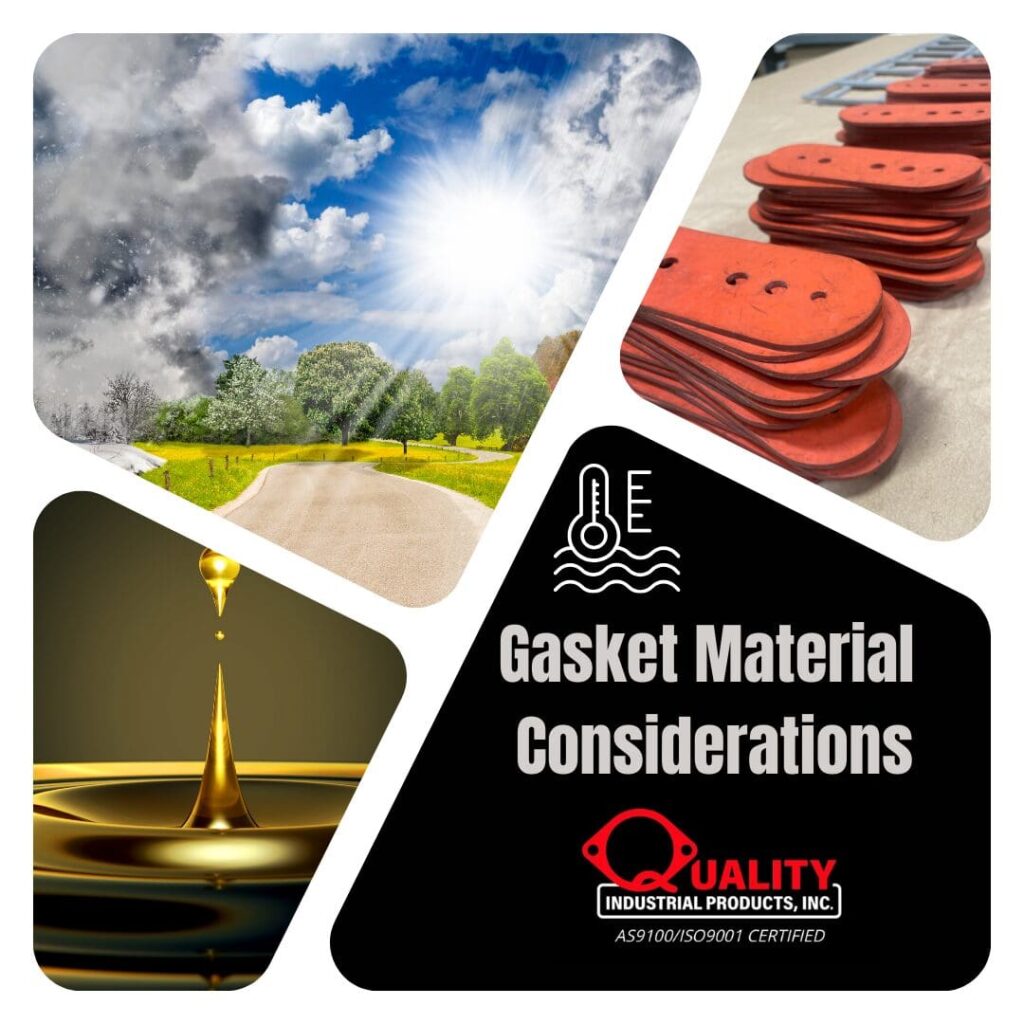Gasket Material Considerations: A Comprehensive Guide

When it comes to creating a reliable seal, selecting the right gasket material is crucial. Gaskets are used in a variety of applications, from automotive engines to industrial piping systems, and the material you choose will directly impact the performance and longevity of your seal. In this blog post, we will explore key considerations in selecting gasket materials, focusing on outdoor exposure, temperature, compressibility, chemical resistance, tensile strength, and the type of liquid the gasket will be sealing. Outdoor Exposure If your gasket will be exposed to the elements, it is essential to select a material that can withstand UV radiation, moisture, and temperature fluctuations. Materials such as EPDM (ethylene propylene diene monomer) and silicone are excellent choices for outdoor applications. EPDM is highly resistant to UV rays, ozone, and weathering, making it ideal for outdoor uses. Silicone, on the other hand, maintains its properties over a wide temperature range and is also resistant to UV radiation. Temperature Temperature is a critical factor in gasket material selection. The gasket must be able to withstand the operating temperature of the application without degrading. For high-temperature applications, materials like graphite, PTFE (polytetrafluoroethylene), and silicone are recommended. Graphite can handle temperatures up to 500°C (932°F) and is often used in steam and high-temperature fluid systems. PTFE is another excellent choice, with a high melting point and resistance to thermal expansion. For lower temperature applications, materials like neoprene and nitrile rubber are commonly used. Compressibility Compressibility refers to the ability of the gasket material to deform under pressure and create a tight seal. This property is crucial for applications where the surfaces being sealed are uneven or have imperfections. Materials like cork, rubber, and foam have high compressibility and can conform to irregular surfaces, ensuring a tight seal. However, it is important to balance compressibility with the material’s ability to return to its original shape to maintain the seal over time. Chemical Resistance If the gasket will be exposed to chemicals, it is vital to choose a material that can resist chemical degradation. For instance, Viton (fluoroelastomer) and PTFE are known for their excellent chemical resistance. Viton is particularly resistant to fuels, oils, and solvents, making it ideal for automotive and aerospace applications. PTFE, also known as Teflon, is highly resistant to most chemicals and is often used in chemical processing industries. Always refer to chemical compatibility charts when selecting gasket materials for specific chemical exposures. Tensile Strength Tensile strength is the maximum stress a material can withstand while being stretched or pulled before breaking. This property is particularly important for gaskets exposed to high pressure or mechanical stress. Materials such as metal-reinforced graphite and aramid fiber gaskets offer high tensile strength and are suitable for demanding industrial applications. Metal-reinforced gaskets, in particular, provide excellent strength and durability while maintaining good sealing properties. Type of Liquid Being Sealed The type of liquid the gasket will be sealing plays a significant role in material selection. For instance, if the gasket will be sealing water, materials like EPDM and neoprene are suitable due to their water resistance. For oils and fuels, nitrile rubber and Viton are preferred choices. In applications involving food and pharmaceuticals, materials like silicone and PTFE are favored due to their non-reactive and non-toxic properties. Conclusion Selecting the right gasket material requires careful consideration of several factors, including outdoor exposure, temperature, compressibility, chemical resistance, tensile strength, and the type of liquid being sealed. By understanding these considerations, you can ensure that your gasket will provide a reliable and long-lasting seal, regardless of the application. Always consult with material experts and refer to compatibility charts to make informed decisions and achieve optimal performance. If you have any questions or need further assistance in choosing the right gasket material for your specific application, feel free to reach out to us. We are here to help you make the best choice for your sealing needs.
